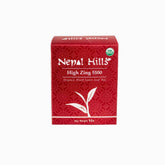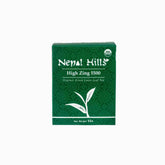The Significance of Tea in Nepali Festivals
In Nepal, tea is not just a beverage; it's a cultural cornerstone that plays a pivotal role in various aspects of life, including festivals. This article explores the deep-rooted significance of tea in Nepali festivals, highlighting its role in celebrations, rituals, and social bonding during these important cultural events.
Tea as a Symbol of Hospitality
During Nepali festivals, tea serves as a universal symbol of hospitality:
- Welcoming Guests: Offering tea is the first act of welcome when guests arrive for festival celebrations.
- Fostering Community: Sharing tea helps create a sense of community and togetherness during festive gatherings.
Role in Major Nepali Festivals
Dashain
Dashain, the most important festival in Nepal, sees tea playing a crucial role:
- Family Gatherings: Tea is served during family reunions, often accompanying traditional sweets.
- Tika Ceremony: After receiving tika (a ceremonial mark on the forehead), participants are often offered tea.
Tihar (Diwali)
During Tihar, the festival of lights:
- Tea is shared during early morning celebrations of Gai Tihar (worship of cows).
- It accompanies the exchange of gifts and blessings between siblings on Bhai Tika.
Losar (Tibetan New Year)
In Himalayan regions of Nepal:
- Butter Tea: Special butter tea is prepared and consumed as part of the Losar celebrations.
- Communal Drinking: Large gatherings often involve communal tea drinking sessions.
Tea in Festival Rituals
Tea is often incorporated into festival rituals:
- Offerings to Deities: Some festivals involve offering tea to deities as part of religious ceremonies.
- Purification Rituals: In certain traditions, tea is used in purification rituals before major festival events.
Social Bonding and Tea
Festivals provide unique opportunities for social bonding over tea:
- Intergenerational Connections: Elders share stories and wisdom with younger generations over cups of tea.
- Conflict Resolution: The relaxed atmosphere of festival tea drinking can help resolve family or community disputes.
Regional Variations
Different regions of Nepal have unique tea traditions during festivals:
- Terai Region: Hot tea or "Dudh chiya" is popular during summer festivals.
- Himalayan Areas: Yak butter tea is a staple during winter festival celebrations.
- Kathmandu Valley: Newari festivals often feature special herbal teas.
Modern Adaptations
As Nepal modernizes, festival tea traditions are evolving:
- Fusion Teas: Some urban celebrations now include modern tea varieties alongside traditional ones.
- Tea Gifting: High-quality teas are becoming popular festival gifts, especially in cities.
Economic Impact
The significance of tea in festivals has economic implications:
- Increased tea consumption during festival seasons boosts local tea industries.
- Specialty teas and tea sets become popular gift items, driving sales.
Cultural Preservation
Tea traditions in festivals play a role in preserving Nepali culture:
- They help transmit cultural values and practices to younger generations.
- Tea rituals during festivals maintain a connection to Nepal's rich heritage.
Conclusion
The significance of tea in Nepali festivals extends far beyond its role as a simple beverage. It serves as a medium for hospitality, a tool for social bonding, and a carrier of cultural traditions. From the bustling streets of Kathmandu during Dashain to the serene monasteries of the Himalayas during Losar, tea remains an integral part of festival celebrations across Nepal. As the country continues to evolve, these tea traditions adapt, ensuring that the warm, comforting presence of a cup of tea remains at the heart of Nepali festival experiences for generations to come.
FAQs
- What type of tea is most commonly served during Nepali festivals? Dudh Chiya (spiced milk tea) is the most common, but this can vary depending on the region and specific festival.
- Are there any festivals specifically dedicated to tea in Nepal? While there's no major festival exclusively for tea, many tea-growing regions hold harvest festivals where tea plays a central role.
- How does the importance of tea in festivals differ between urban and rural areas of Nepal? In rural areas, traditional tea practices during festivals are more prevalent, while urban areas may incorporate more modern tea trends into their celebrations.





